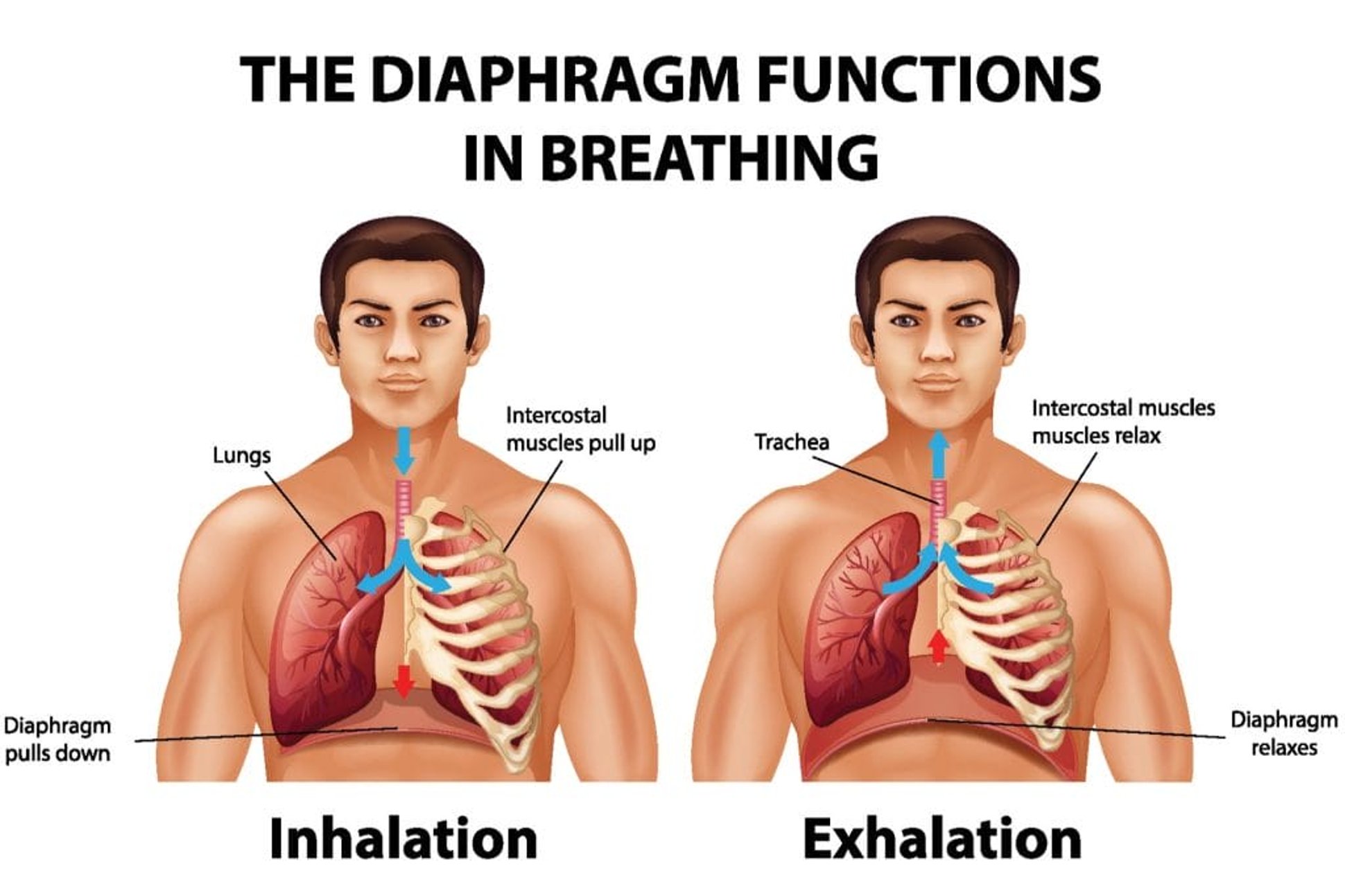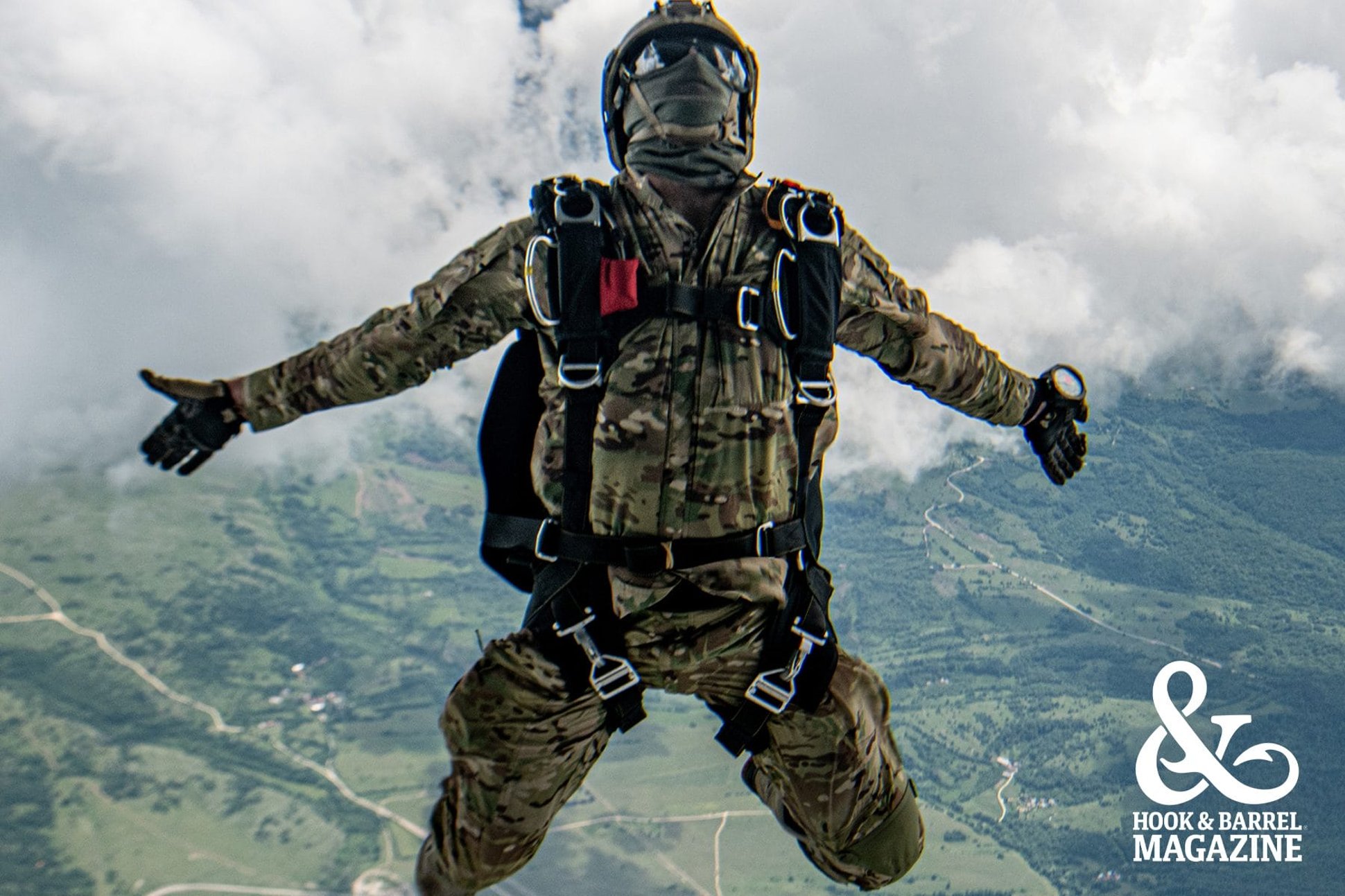Click to listen to the audio version of this article.
Breath control is an age-old technique, but its importance has been highlighted in recent years by elite groups like Navy SEALs, pro athletes, and high-stress professionals. For Navy SEALs, learning to control their breath is essential for survival and peak performance in high-stakes situations.
Here we aim to explain the science behind optimal breathing and share techniques that can help anyone—even big-game hunters about to release an arrow at a monster buck—achieve better mental and physical health.
Ever found yourself in a stressful situation, struggling to maintain your composure? Well, the secret to staying calm might be right under your nose—literally. Just breathe. Breath control is the art and science of learning to breathe optimally and using your breath to remain calm and effective.
The Breakdown
Breath control consists of two main elements: learning to breathe optimally and using your breath to be calm, effective, and happy regardless of the circumstances.

At Trident Mindset, we love the term Optimal Breathing. However, like most great ideas that have stood the test of time, it comes with many names. Box breathing, or even four-square breathing, is a simple yet powerful technique used to calm the mind and body.
The Technique
• Inhale: Breathe in slowly through your nose for a count of four, filling your belly with air.
• Hold: Hold your breath for a count of four.
• Exhale: Exhale slowly through your mouth for a count of four.
• Hold Again: Hold your breath again for a count of four.
Optimal Breathing Benefits
Physiological Impact: Optimal Breathing can significantly reduce stress by influencing the autonomic nervous system, which controls involuntary functions like heart rate and digestion. Box breathing helps balance the sympathetic (fight-or-flight) and parasympathetic (rest-and-digest) systems, promoting relaxation and recovery.
Psychological Benefits: Box breathing impacts mental health by enhancing mental clarity and improving focus. Controlled breathing reduces anxiety, making it easier to concentrate on the task at hand.
Improved Decision-Making: In chaotic and fearful situations, controlled breathing enhances decision-making abilities. It calms the nervous system, slows the heart rate, and brings the nervous system back into balance.
Learn From Experience
From the depths of Navy SEAL missions to the heights of extreme endurance races, I have practiced the art of turning adversity into advantage. My journey from the battlefield to the boardroom has been fueled by a relentless pursuit of excellence, both personally and professionally. I don’t just teach mental toughness, I embody it, having braved some of the world’s most challenging environments. My ability to simplify complex challenges into actionable solutions has not only propelled me through elite military operations but also guided me as the CEO of Trident Mindset and co-owner of Trident Athletics, where I influence others to find their warrior within.

Survival By Breath Control
One vivid example of the power of breath control happened during a training mission in Bremerton, Washington. A teammate and I were tasked with planting a limpet mine on a ship in the dark, frigid waters of the Puget Sound—a place known for its orcas. We were using rebreathers to stay hidden underwater, but things went south quickly.
With only two minutes of oxygen in our tanks, we found ourselves disoriented and repeatedly colliding with solid objects underwater. Drowning was a real threat, and our air was running out fast. Despite the escalating danger, we maintained our composure through optimal controlled breathing. By staying calm and using the buddy-breathing technique, we shared what little air we had left and navigated our way out of the underwater labyrinth.
Overcoming Childhood Asthma
As a child, I struggled with severe asthma, which often left me gasping for breath during physical activities. I remember nights when I’d wake up unable to breathe, my chest tight with fear and my inhaler barely providing relief. This condition seemed like a barrier to my dreams of becoming a Navy SEAL. Determined not to let asthma define me, I learned to control my breathing through various techniques, gradually improving my lung capacity and stamina. When I finally decided to join the Navy, I lied to the recruiter about my asthma, knowing that my breath control techniques had equipped me to handle the rigorous demands of SEAL training.

Advanced Techniques
For those looking to take their breath control to the next level, the following two additional techniques can further enhance your practice.
Diaphragmatic Breathing
Diaphragmatic Breathing, also known as belly breathing, involves deeply inhaling so that your diaphragm expands and contracts, rather than just your chest. This technique maximizes oxygen intake, promotes relaxation, and can improve overall lung function.
• Find a Comfortable Position: Sit or lie down in a comfortable position with one hand on your chest and the other on your abdomen.
• Inhale Slowly: Breathe in slowly through your nose, ensuring your abdomen rises more than your chest. Focus on expanding your belly while keeping your chest relatively still.
• Exhale Fully: Exhale through your mouth, feeling your abdomen fall as you push the air out.
• Repeat: Continue this process for 5-10 minutes, concentrating on the movement of your diaphragm and the relaxation
it brings.
Alternate Nostril Breathing
Alternate Nostril Breathing is a yoga-based technique that balances the body’s energy and calms the mind.
• Sit Comfortably: Sit in a comfortable position with your spine straight and shoulders relaxed.
• Close Your Right Nostril: Use your right thumb to close your right nostril.
• Inhale Deeply: Inhale deeply through your left nostril.
• Switch Sides: Close your left nostril using your ring finger, release your right nostril, and then exhale through the right nostril.
• Inhale Right: Inhale through the right nostril, then close it again with your right thumb.
• Exhale Left: Release your left nostril and exhale through the left nostril.
• Repeat the Cycle: Continue this cycle for 5-10 minutes.

Breathing for Hunting
When you’re out in the field, the ability to remain calm and focused can make all the difference in either making or missing the shot. Before taking a shot, practice a few cycles of optimal breathing to steady your nerves and enhance your focus. (B.R.A.S.S) Breath, Relax, Aim, Sight, Squeeze.
Breath Control for Athletic Performance
Whether you’re running, cycling, or lifting weights, optimal breathing can improve your endurance and performance. Try this breathing exercise during your warm-up:
• Inhale: Breathe deeply through your nose into your diaphragm for a count of five.
• Exhale: Slowly release the breath through your mouth for a count of five.
• Repeat: Continue this cycle for five minutes.
This exercise helps oxygenate your muscles, reduce fatigue, and enhance your overall performance.
Breathing Exercise for Stress Management (6-6-6-6)
Incorporating breath control into your daily routine can help manage stress and improve mental clarity.
• Inhale: Breathe in deeply through your nose for a count of six, focusing on expanding your belly.
• Hold: Hold your breath for a count of six.
• Exhale: Exhale slowly through your mouth for a count of six.
• Hold: Hold your breath again for a count of six.
• Repeat: Continue this cycle for six minutes.
Conclusion
Optimal breathing is a simple yet powerful tool that can transform your mental and physical health. Start practicing these methods today and experience the profound benefits for yourself.
Get Acclimated For High-Country Hunting
Conquering a high country hunt is not necessarily about being tough, it is about being prepared. Understanding the factors that amplify our risk at high altitudes is key to optimal preparation. These factors include rapid ascent, intense physical exertion, dehydration, and nutrition.

GETTING STARTED: Gradual acclimation (minimum of 48 hours prior to physical exertion) is ideal to lessen the risk of altitude sickness and allow your body time to adjust to the lower oxygen levels. The more time you have to adapt, the better your body will perform.
TRAINING: Pre-hunt physical training dictates how well you will perform in the mountains. Training consistently to build stamina and cardiovascular fitness will always lend to a smoother adjustment into high altitudes. However, this does not mean you should ignore your body’s signals if you are over-exerting yourself. Managing your expectations of hitting a certain pace and operating based on your perceived effort will go a long way for sustained performance.
BODY FUEL: Hydration and nutrition are non-negotiables when trekking into high altitudes. Front-load your fluid intake days before your ascent. Focus on balanced meals that include complex carbohydrates for sustained energy, protein for muscle recovery and repair, and increase your iron intake to boost oxygen-carrying capacity in the blood. Ensure you’re balancing your electrolyte intake in accordance with your sweat levels. —Sarah Maschino, Head Trainer for MTNTOUGH Fitness Lab (mtntough.com)
Get 30% OFF MTNTOUGH+ ANNUAL PLAN!
Hook & Barrel Magazine readers, here's your chance to gain unlimited access to all MTNTOUGH programs, workouts, and content at a 30% discount. Visit the link below for details!
Code: HB30
Available only at MTNTOUGH.com

